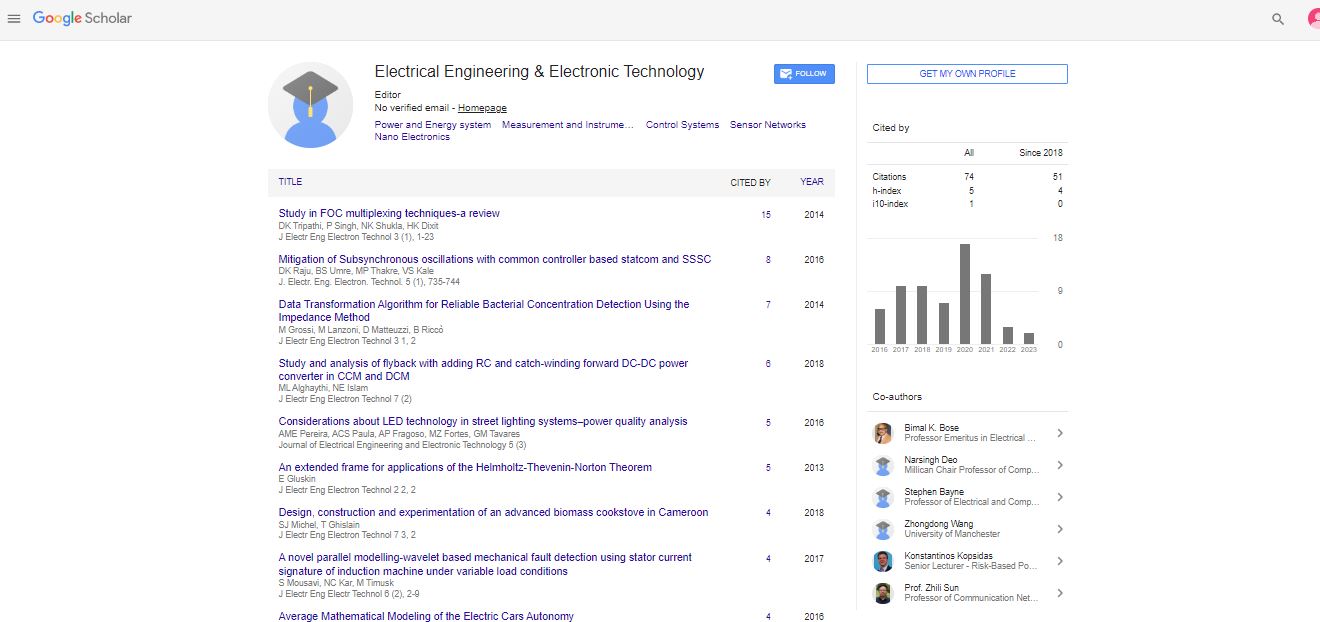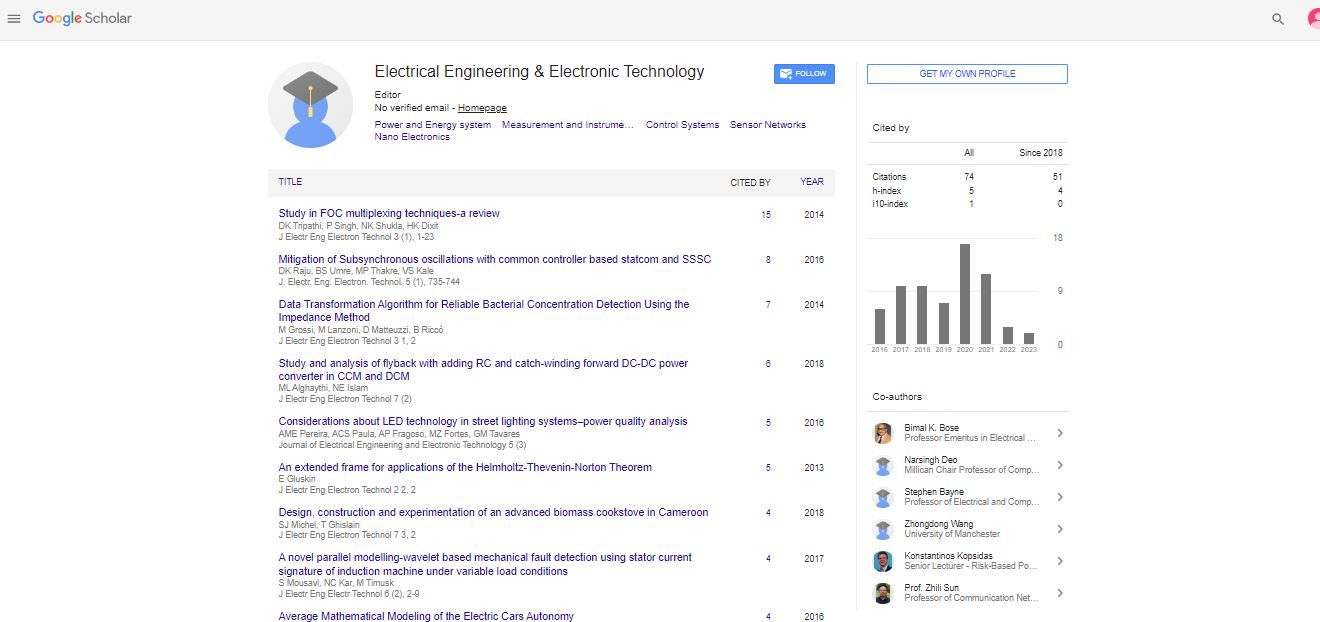Short Communication, J Electr Eng Electron Technol Vol: 7 Issue: 3
Effect of Primary Network on Performance of Spectrum Sharing System over Nakagami-m Fading Channel
Fahim Khan1*, Taimour Khan1 and Muhammad Fahad2
1Blekinge Institute of Technology, Blekinge Tekniska Högskola, Karlskrona 371 79, Sweden
2National University of Sciences and Technology H-12, Islamabad, Pakistan
*Corresponding Author : Fahim Khan
Blekinge Institute of Technology, Blekinge Tekniska Högskola, Karlskrona 371 79, Sweden
Tel: + (46) 707698935
E-mail: Fahimkhan.bth@gmail.com
Received: August 06, 2018 Accepted: September 10, 2018 Published: September 17, 2018
Citation: Khan F, Khan T, Fahad M (2018) Effect of Primary Network on Performance of Spectrum Sharing System over Nakagami-m Fading Channel. J Electr Eng Electron Technol 7:3. doi: 10.4172/2325-9833.1000167
Abstract
Cognitive radio is an emerging radio technology that can improve the efficiency of the radio spectrum utilization. Cognitive radio senses the vacant space in the radio spectrum by changing its operating parameters and uses the vacant spectrum in an opportunistic way and immediately vacates the spectrum bands once the primary user (PU) is detected. The cognitive radio efficiently uses radio spectrum by operating in both licensed and unlicensed bands and avoids the interference with the licensed or unlicensed users. The PU holds the license for a particular band and has the priority to use the channel. The secondary user (SU) can use the vacant bands as long as they do not affect the PU transmission. However, previous research work has ignored the effect of interference from primary networks on the performance of spectrum sharing system. In this paper, the performance of amplify-and-forward relay networks, where the interference from the primary networks is considered, is studied. We considered the impact of the primary transmitter on the spectrum sharing system in the presence of a Nakagami-m fading channel, where the fading parameter m (m is an integer) can be used to deal with a variety of channel scenarios. A closed-form of Nakagami-m fading channel is derived. Derivation is based on the system model composed by secondary users, primary users and amplify-and-forward relay.
 Spanish
Spanish  Chinese
Chinese  Russian
Russian  German
German  French
French  Japanese
Japanese  Portuguese
Portuguese  Hindi
Hindi 
